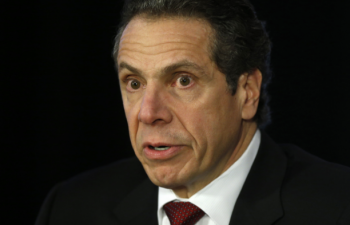Governor Cuomo Pushes for a Stricter Medical Marijuana Bill
Today, New York Governor Andrew Cuomo said that he would not sign a bill that would legalize medical marijuana in the state unless several changes were implemented.
Cuomo has delivered a list of demands that he requires prior to supporting the medical marijuana bill, known as the Compassionate Care Act. Negotiations between Cuomo’s office, the Assembly and the Senate began only late last Thursday and are due before midnight so the Legislature can vote on the bill before the session concludes June 19.
Cuomo’s full list of changes was obtained by advocates, many of which are already addressed in the current legislation. The delay in announcing these demands have caused many to believe that he is not serious in passing it. Sponsors of the bill have already agreed to several of the changes to appease Cuomo; however additional changes require restricting eligible diseases, banning smoking, and lowering doses.
Cuomo’s demands include eliminating serious conditions, including Alzheimer’s, ALS, and muscular dystrophy, and preventing cancer patients and individuals living with HIV from using medical marijuana to treat the side effects of their medications and chemotherapy, like nausea, wasting, and treatment-related pain. Additionally, Cuomo wants to eliminate post traumatic stress disorder (PTSD) and traumatic brain injury, conditions for which medical marijuana has shown to be beneficial. Cuomo requests the removal of a health advisory panel that would decide which disease the drug could be used for and instead giving that authority to New York’s health commissioner.
The changes also include reducing the amount a patient could receive per month from 2.5 ounces every 30 days to 2 ounces.
Cuomo’s changes would also require physicians recommending medical marijuana to be pre-approved by the Department of Health (DOH) and give DOH the ability to over-ride the recommendations of physicians participating in the program in regards to the dosing and administration route. He also recommended reducing the number of manufacturers in the state to five and the number of dispensaries to twenty for the entire state.
“Governor Cuomo is proposing unprecedented interference in the doctor-patient relationship and erecting so many barriers to participation in the medical marijuana program that few, if any, physicians will take part. There is no other medication for which DOH is allowed to come in and abridge the authority and particulars of a physician’s recommendation to his or her patient. I am hoping that such overly restrictive and intrusive language does not appear in the final negotiated bill,” said Sunil Aggarwal, MD, PhD, Co-chair of NY Physicians for Compassionate Care, a group representing more than 600 New York physicians.



